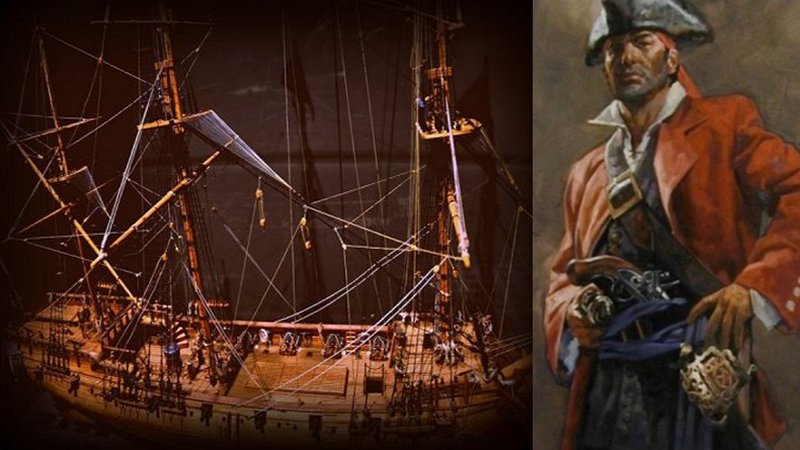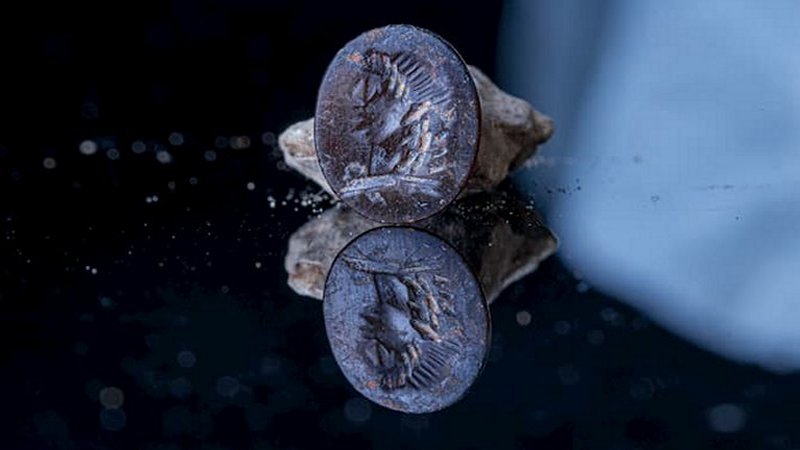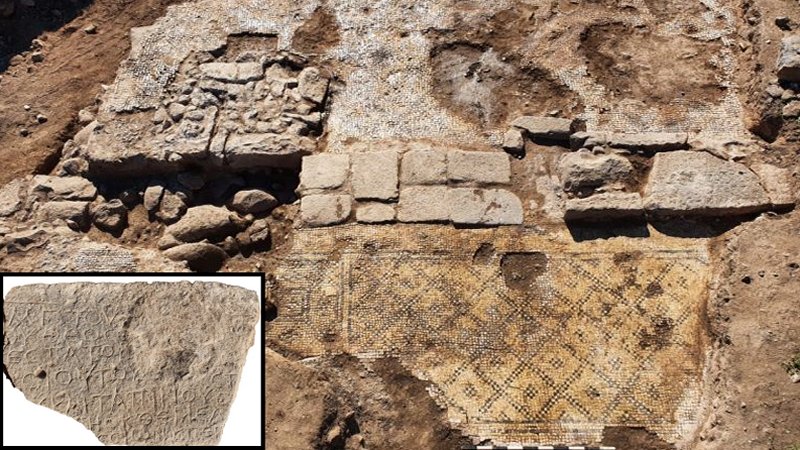Huge Greek 2,500-Year-Old Naval Base Discovered In Piraeus, The Harbor City Of Athens
MessageToEagle.com – A huge Greek 2,500-year-old naval base has been discovered in Piraeus, the harbor city of Athens.
Archaeologists say these are the remains of one of the largest building complexes of the ancient world.
University of Copenhagen archaeologist Bjørn Lovén, who led the expedition as part of the Zea Harbor Project, identified and excavated six ship-sheds that were used to protect the Greek ships from shipworm and from drying when they were not needed on the sea.
“The sheds were monumental,” Lovén said.
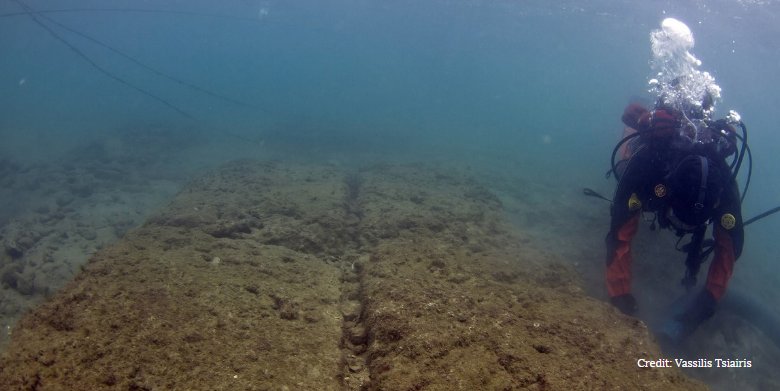
Featuring massive harbor fortifications and sheds designed to hold hundreds of war ships called triremes, the base played a key role in the most decisive naval battle of antiquity, the famous Battle of Salamis, against the Persian Empire, the naval conflict that saved Greece and the young democracy of Athens in 480 BCE.
Battle Of Salamis Was The First Great Naval Battle Recorded In History
The Battle of Salamis in 480 B.C was the first great naval battle recorded in history. It took place during the Greco-Persian Wars in which a Greek fleet defeated much larger Persian naval forces in the straits at Salamis.
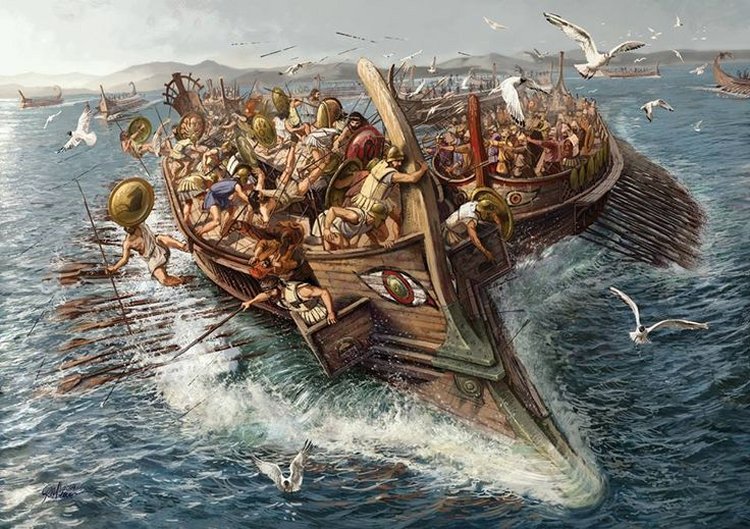
By 480 the Persian king Xerxes and his army had overrun much of Greece, and his navy of about 800 galleys bottled up the smaller Greek fleet of about 370 triremes in the Saronic Gulf. The Greek commander, Themistocles, then lured the Persian fleet into the narrow waters of the strait at Salamis, where the massed Persian ships had difficulty maneuvering.
See also:
Peace Of Callias – A Treaty That Ended The Greco-Persian Wars
Achaemenid Empire Was The World’s Largest Ancient Empire
Battle Of Cape Ecnomus: One Of The Greatest Naval Battles In History
The Greek attacked furiously, ramming or sinking many Persian vessels and boarding others. The Greeks successfully sank about 300 Persian vessels while losing only about 40 of their own. The rest of the Persian fleet was scattered, and as a result Xerxes had to postpone his planned land offensives for a year, a delay that gave the Greek city-states time to unite against him.
As Plato put it, “Themistocles robbed his fellow-citizens of spear and shield, and degraded the people of Athens to the rowing-pad and the oar.”
Huge Fortifications Testify To The Might Of The Athenian Navy
The discovered naval base is very large. Archaeologists confirm the foundations under the columns were 4 foot by 6 inches and the sheds themselves were just over 19 feet wide, up to 26 feet tall and 164 feet long. Based on pottery and carbon-14 dating from a worked piece of wood found inside the foundations of a colonnade dividing two ship-sheds, Lovén and colleagues dated the structure to around 520-480 B.C. or shortly thereafter.
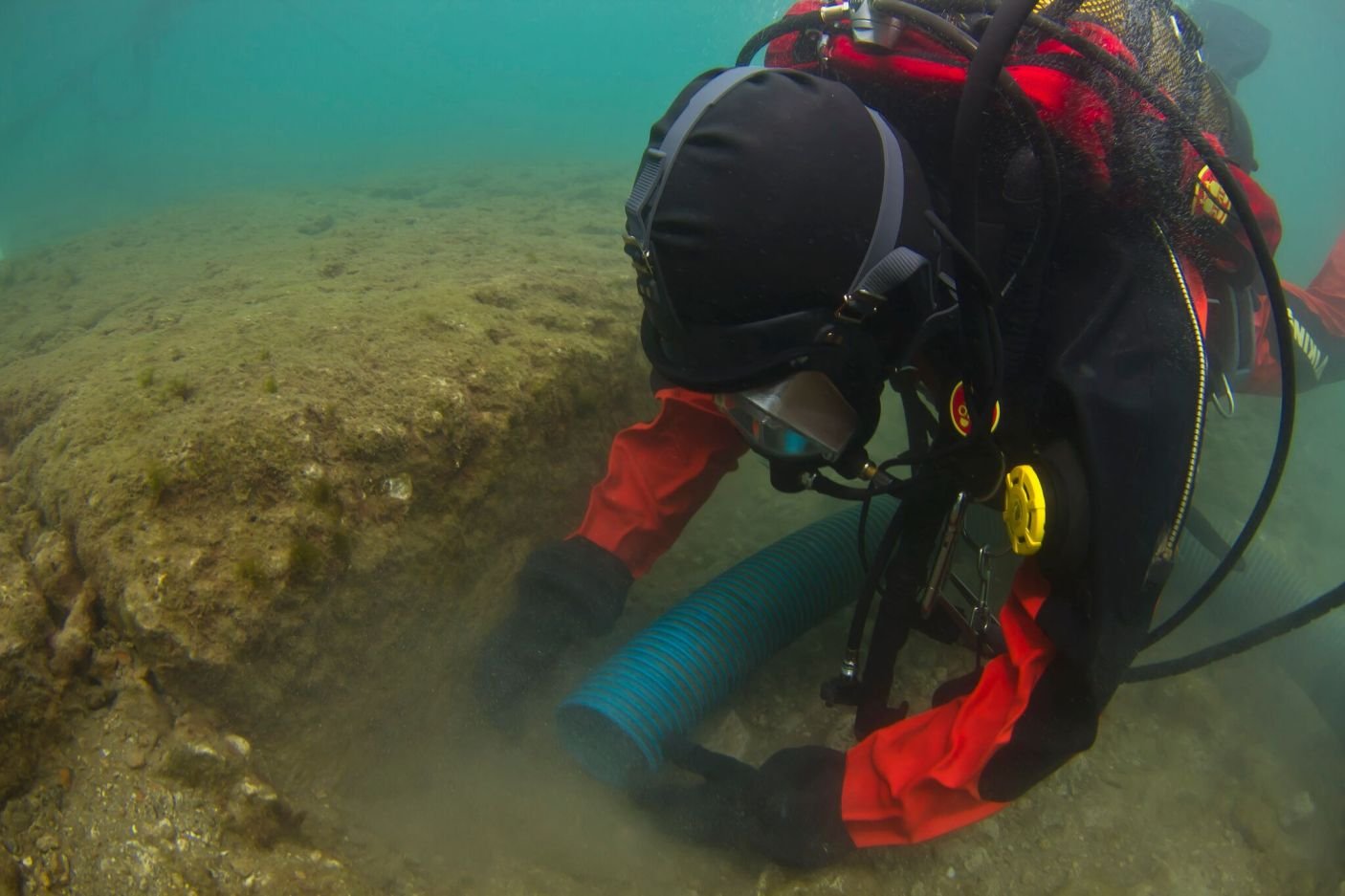
“These ship-sheds were built in the years of the young Athenian democracy. It is an enticing thought that some of the Athenian triremes that fought against the Persians at Salamis in 480 BC were most probably housed in these ship-sheds,” says Lovén.
“Keep in mind that all social classes rowed and fought aboard triremes in the Battle of Salamis. I strongly believe that this very important battle in the Salamis Strait, just west of Piraeus – a turning point in world history – created an immensely strong bond among most of the citizens.
That is how the Athenian navy was to develop into the backbone of the world’s first democracy during the 5th century BC. What we’ve been excavating, in essence, are the material remains of that extraordinary historical development,” Lovén added.
These huge fortifications testify to the might of the Athenian Navy that once ruled the waves.
MessageToEagle.com


